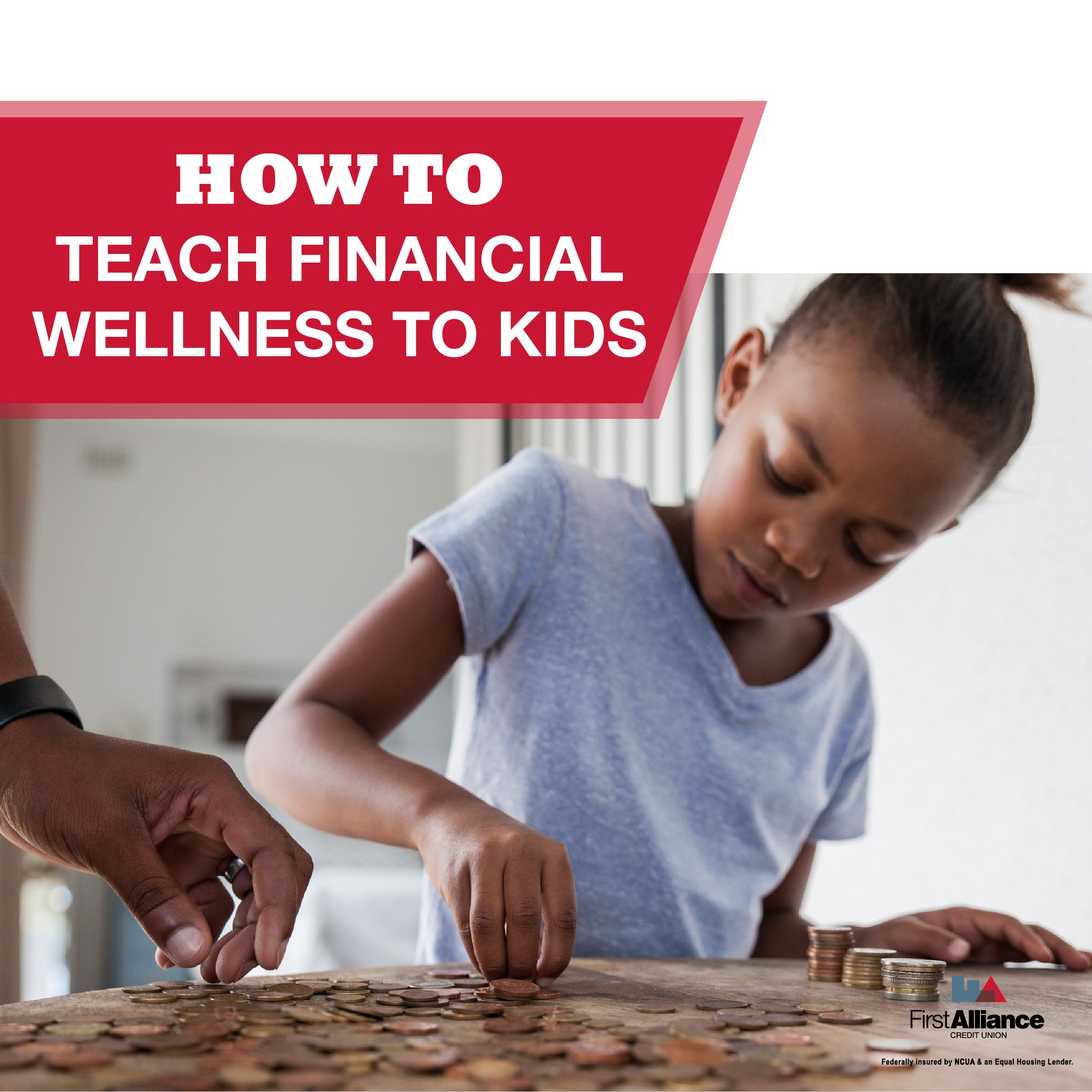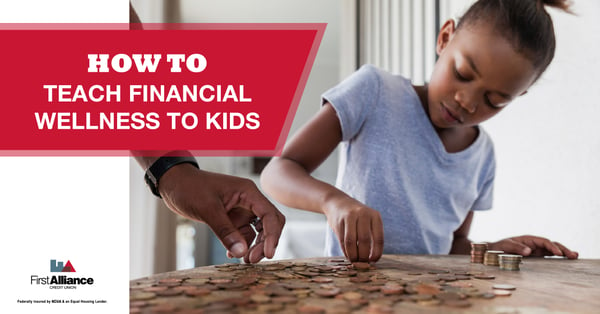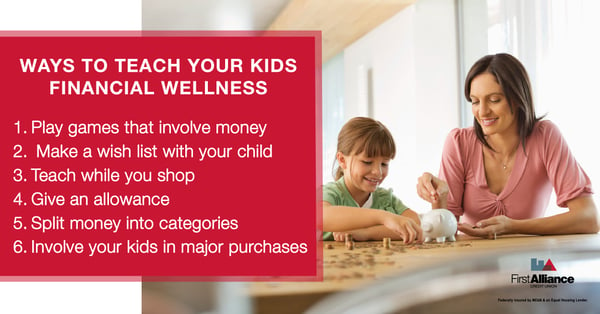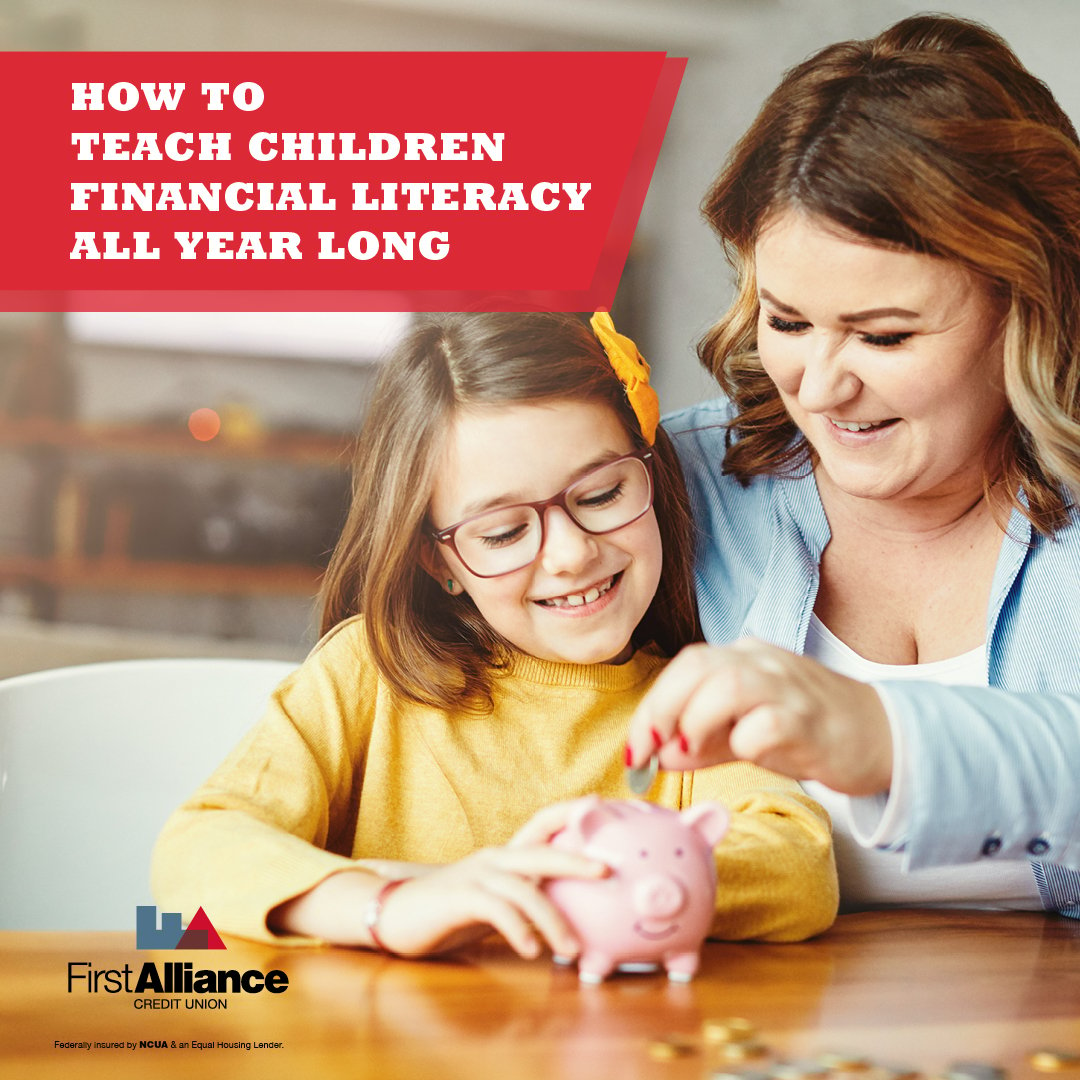4 Financial Lessons For Kids Who Are Distance Learning
If you have children, the odds are you’ve had to figure out how to handle distance learning, thanks to the COVID-19 pandemic. This isn’t an easy time...

Practical money management skills learned at an early age can have a lasting impact on the rest of your child’s life. In fact, this is one of the most important areas where you can truly change the course of their life. Educating your children about financial wellness will help them build healthy spending and saving habits for the future.

One of the best ways to teach a lesson is by doing so without your child even realizing that they are learning. Play games that include a financial element like Monopoly or Life and help them strategize during the game. This will help your child learn the importance of budgeting and planning for the future, all under the guise of play.
An essential part of financial literacy is creating a set of priorities. We can’t have everything we want all at once, but we can achieve our goals over time if we plan ahead. This is a great lesson that children can learn. Sit down with your child and have them list five things they want. Then have them rank them from most important to least important. Once the list is created, strategize with your child about how they can obtain their wishes.
Take your child shopping and actively explain your decision-making process. When you arrive at the store, tell your child how much money you have to spend and what your priorities are. Show them why you are picking one item over another and explain things like discounts and coupons. Remember, children will learn from your example. Telling them about budgeting is important, but it’s much more impactful if they see you following a budget yourself.
Additionally, give your child small amounts of money to spend themselves. You’ll be surprised at how happy they will be to spend $2 on anything they want! They’ll also learn the importance of spending with a limited budget.
Giving an allowance gives children first-hand experience with money. They learn the rewards of careful spending and saving and the risks of making impulsive spending decisions. And those risks are a lot smaller than they will be later in life! Kids also appreciate things that they can buy with their own money.
If you’re wondering how much allowance to give, know there aren’t strict guidelines. Some parents choose to give one dollar for each year of a child’s age. Other parents base their kids’ allowance on work they do around the house — like cleaning, lawn and garden chores, or babysitting younger siblings. Some parents put their kids in charge of paying for some of their own expenses — like clothing, video games, or tickets to movies — and set the allowance based on that.
Whatever amount you decide on, keep in mind that it will become a regular expense for you to consider in your family budget. Make it work for you and your child.

Get a piggy bank that splits money into spending, saving, and giving. Teach your child about what each category is and how they are allowed to use the money in each section. Every time you give them their allowance, talk them through how they plan to use their funds. Place a piggy bank next to your child’s wish list so that their spending and saving goals are clear to them. Also, talk through the charitable causes your child thinks are important, and when they hit a giving goal, donate the money to that cause in your child’s name.

Deciding where to go on vacation? Buying a new appliance? Include your kids in the process and have them help with the research. You can show them the factors that go into making the decision and have them help you compare the options before making the purchase. They’ll feel proud to know they helped with the research to make the best decision for the entire family.
In short, teaching children about finances can be easier than it might seem. It just takes a bit of planning, a little patience, and some creativity. Once your child learns the basics of finances, you can increase their financial responsibilities by upping their allowance and helping them to open a savings and checking account. These lessons will help your child develop a healthy attitude towards money as they grow into adults.
It's important to teach your kids about money to promote financial wellness as an adult. You can start by using the tips we've shared in this article and then help your kids open a youth account at First Alliance Credit Union. When children have their own banking account they will feel empowered to manage their money!
Do you need help navigating your financial situation to be better equipped to teach your kids? Our member advisors can help you build a budget, understand your credit report, come up with a plan to repay debt, and work with you to create an action plan to achieve your family’s financial goals.
This article is shared with us by our partners at GreenPath Financial Wellness, a trusted national non-profit.

If you have children, the odds are you’ve had to figure out how to handle distance learning, thanks to the COVID-19 pandemic. This isn’t an easy time...

April is Youth Financial Literacy month, and as part of this several credit unions, including First Alliance, are putting on programs to help...
.jpg)
When most parents start teaching children about money, they usually give their children an allowance and help them get their own bank account. What...